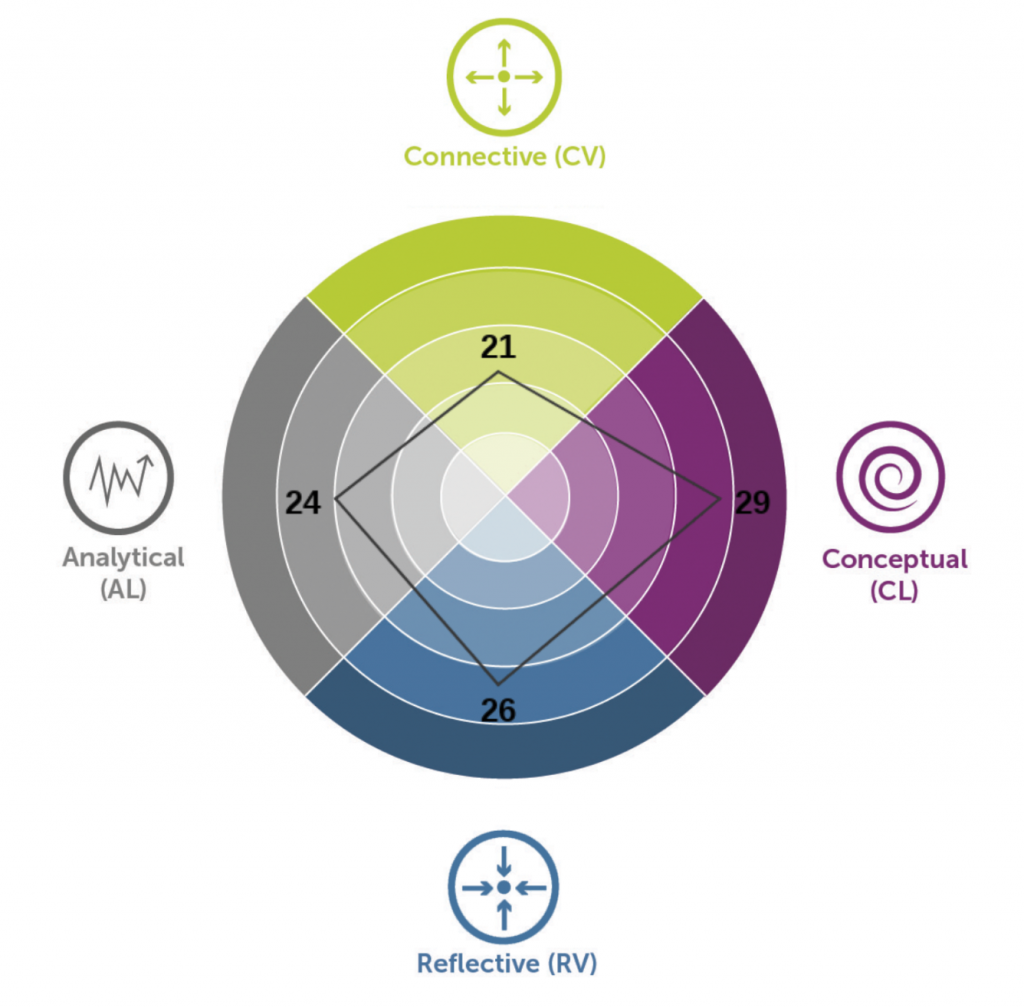Three tips to improve the sales process with listening
In my journey to make sales and account managers even more successful in their work, I recently discovered Listening Intelligence. This method is on the initiative of Corine Jansen and John Jansen also available in the Netherlands. Where Corine has been active with professional listening for over 10 years, John is an entrepreneur with a lot of experience in growing companies.
I've had the pleasure of doing a listening intelligence survey for myself. The results were surprising and help me in my daily work as a sales coach and trainer.
John shared an article last week about listening intelligence in sales. In this item John describes the four different listening profiles:
- Connective listeners
- Reflective listeners
- Conceptual listeners
- Analytical listeners
Although there are four different types of listeners, there are 41 combination profiles. My personal listening style is 'The Flexer'. I can rely on all four listening styles and adapt my listening style to the situation and the people.

The article by Johnand the fact that today is the 'International Day of Listeningtriggered me to share my experiences with Listening Intelligence and sales. In this blog I describe 3 applications where Listening styles can be used to improve the sales process.
1. Sales qualification becomes easier
Research shows that more than a quarter of the salespeople surveyed consider the qualification of a lead to be the most difficult part in the sales process. Listening to your prospect can make a huge contribution to this.
Having a good understanding of the listening style of the potential customer helps you to assess which communication style can be used optimally and which advantages of your proposition can be emphasized. After all, when you know how someone listens to you, you can respond to it and you can convey your information in a different way that is more pleasant for the recipient to hear.
The listening skills of a prospect and that of the sales are a good way to find relevant commercial leads, mainly from the unique perspective of the listening prospect. By determining the listening habits of your conversation partner, you can predict what people prefer to focus on, for example cost advantages, or the unique application and features that your product offers (read also service or service for product, of course).
An example: A Conceptual listener shows more interest in the general application possibilities. An Analytical listener, on the other hand, wants to hear in more detail what functions the product has and what it contributes to solving the problem. Notice: We talk about listening but the same goes for reading information!
2. Conversion is easier
Once you have a good understanding of the listening styles of the contacts you're communicating with, it's easier to connect with them. Based on the specific information you get from what someone likes to hear, you can present your information.
If you are presenting to a group of people, you can be sure that there are different listening preferences within that group. You can connect the group as a whole by addressing the individual members in the way that they like to absorb the information.
The more you tune your offer and pitch (spoken and written) to the listener, the easier the conversion to the signature and thus the assignment! If your prospect feels heard and recognises himself in the benefits of your product or service, he will take the step to do business with you sooner.
3. Work actively on a long-term relationship
It goes without saying that when you are able to build up a report with your client and that you show genuine interest in his/her well-being, this will contribute to your long-term relationship.
Don't tire a Conceptual Listener with, in their eyes, irrelevant facts, use those for the Analytical Listener. Tell a Reflective Listener what the benefits are for him or her, while a Communicative Listener thinks primarily of the benefits for his or her environment.
If you know your own listening style and you learn more about the other listening styles, you will also recognize them in your interlocutors. With this knowledge, you will be able to conduct your conversations even better. Sales is and remains people's business, Read that article, too. After all, every sale is about the personal click and attention you give each other.
ECHO's listening styles are based on scientific research. This shows that Listening is a cognitive function, and can therefore be practised and improved.
Do you want to know more about listening styles and how to apply them? Please contact Corine or John. They will gladly and enthusiastically tell you more about it!
Note: This article is based on a blog by Dana Dupuis CEO of ECHO..

